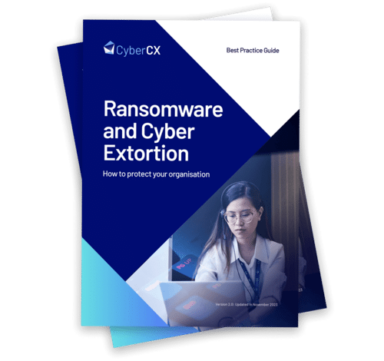PCI DSS Services
Safeguard customer credit card information and strengthen your organisation’s ability to process payments securely with PCI DSS compliance.


Benefits of PCI DSS compliance

Improve your security posture
PCI DSS compliance provides a framework that helps secure your critical data and reduces the likelihood of a cyber security breach.

Safeguard e-commerce operations
Maintaining certification safeguards your right to accept credit card payments through your acquiring bank and preserves the core of your online shopping operation. It ensures stability of payment operations without risk of penalties and extra fees.

Maintaining trust and reputation
PCI DSS compliance helps your organisation maintain trust and reputation, while meeting the data security requirements needed to maintain partner and customer relationships.


CyberCX PCI DSS Compliance Services
CyberCX offers a range of services relating to PCI DSS
PCI DSS Scope Discovery and Validation
Scope Discovery and Validation focuses on clearly identifying, categorising and documenting the areas of the organisation that make up what is known as the In-Scope Environment.
PCI DSS Gap Analysis
Gap Analysis provides a clear understanding of the current state of compliance with the PCI DSS as well as a roadmap of what needs to be done to meet the current PCI DSS compliance standards.
PCI DSS Remediation and Advisory Services
Remediation and Advisory Services are a broad category of service offerings that can be delivered to meet a client’s specific PCI DSS requirements.
PCI DSS Self-Assessment Questionnaire Assistance
A Self-Assessment Questionnaire (SAQ) is generally suitable for organisations that process a relatively small number of credit card transactions per year (typically less than a million). CyberCX can assist you in completing a SAQ.
PCI DSS Pre-Assessment
The PCI DSS Pre-Assessment focuses on identifying your organisation’s current state of compliance with the current PCI DSS version to provide an indication of readiness for a full PCI DSS Audit. CyberCX will conduct the Pre-Assessment in a similar manner to a full assessment but at a slightly higher level of detail.
PCI DSS Audit
A PCI DSS Audit incorporates all system components included in, connected to, or that provide security services to client’s cardholder data environment in the audit scope. This includes systems, technology, networks, people, processes and procedures used to process, transmit, store and manage cardholder data within the environment.
Trusted cyber security partner to leading Australian organisations.



What is the Payment Card Industry Data Security Standard (PCI DSS)?

The Payment Card Industry Data Security Standard (PCI DSS) guides organisations on the steps to take to safeguard customers’ valuable credit card information.
The PCI DSS is a compliance standard that applies to all organisations that accept credit card payments. It further applies to those organisations providing supporting services to merchants which could affect the security of the merchant environment such as payment processors, outsourced call centres and cloud-based infrastructure providers.
Any organisation that accepts, processes, transmits or stores credit card information must have measures in place to secure this critical data.


Why CyberCX for PCI DSS Services?

CyberCX has unrivalled expertise helping organisations of all sizes achieve, prove and maintain PCI DSS compliance.
Small to medium organisations will benefit from expert guidance managing the complexities of the SAQs, while larger organisations will benefit from our experience conducting full on-site reviews, gap analyses and remediation works. Our registered Qualified Security Assessors (QSAs) will help you achieve certification.
PCI DSS compliance is all about protecting your customers from fraud and your business from expensive or damaging data breaches. So, it’s essential you have the right team assisting you throughout the process.

Ready to get started with PCI DSS Compliance?
CyberCX is Australia’s leading team of PCI DSS experts that can expertly guide you through each stage of your PCI DSS compliance journey.
PCI DSS FAQs
Have a question about PCI DSS not covered here?
Contact our team and we’ll be happy to help.
The Payment Card Industry Data Security Standard (PCI DSS) is a security standard designed to ensure that all companies that capture, process, store or transmit credit card information maintain a secure environment.
The aim of the Standard is to protect the integrity of sensitive cardholder data and to reduce credit card fraud.
- Decreased risk of cyber security breaches
- Provides a security standard
- Enhances your organisation’s brand reputation
- PCI DSS compliance is held in high regard by banks and credit card companies
- Customer reassurance that their card details are secure when they do business with your organisation
PCI DSS guidelines include 12 requirements for merchants and payment processors, grouped into six areas. They are:
- Build and maintain a secure network and system
- Protect cardholder data
- Maintain a vulnerability management program
- Implement strong access and control measures
- Regularly monitor and test networks
- Maintain an information security policy
The PCI DSS is an international standard and applies to all organisations across the world that use payment cards to facilitate payment. All Australian organisations that accept card payments are required to comply with the PCI DSS regardless of business size.
PCI DSS is a security standard, not a law. Compliance with it is mandated by the contracts that merchants sign with the card brands (Visa, MasterCard, etc.) and with the banks that handle their payment processing.
Ultimately the level of PCI DSS compliance will be determined by your bank. The higher the level, the more rigorous you will need to be when implementing the PCI DSS and in particular reviewing and reporting on your compliance.
The bank will typically base the assessed level on the number of transactions per card brand over a 12 month period. Each brand has its own calculation for which level you are assigned, but it is generally similar to:
- Level 1: Merchants that process over 6 million card transactions annually
- Level 2: Merchants that process 1 to 6 million transactions annually
- Level 3: Merchants that process 20,000 to 1 million transactions annually
- Level 4: Merchants that process fewer than 20,000 transactions annually
A bank can also elect to move you to a higher level if you pose a security risk such as having recently suffered a cyber security breach.


PCI DSS related content

Ready to get started with PCI DSS Compliance?
CyberCX is Australia’s leading team of PCI DSS experts that can expertly guide you through each stage of your PCI DSS compliance journey.
Australia’s trusted
cyber security and cloud partner
Expertise at scale
More than 1,400 cyber security and cloud professionals delivering solutions to our customers.
Eyes on glass 24/7
Continuous monitoring of your network across our 9 advanced security operations centres globally.
Help when you need it
The region’s largest team of incident responders handle over 250 cyber breaches per year.
Assessing your needs
Industry-leading experts conduct more than 500 baseline security assessments per year.
Providing credible assurance
Our exceptional team of ethical hackers conducts over 3,000 penetration tests per year.
Training the next generation
The CyberCX Academy is training 500 cyber professionals over the next three years.

Cyber security services
End-to-end services covering every challenge throughout your cyber security and cloud journey.

Ready to get started?
Find out how CyberCX can help your organisation manage risk, respond to incidents and build cyber resilience.





